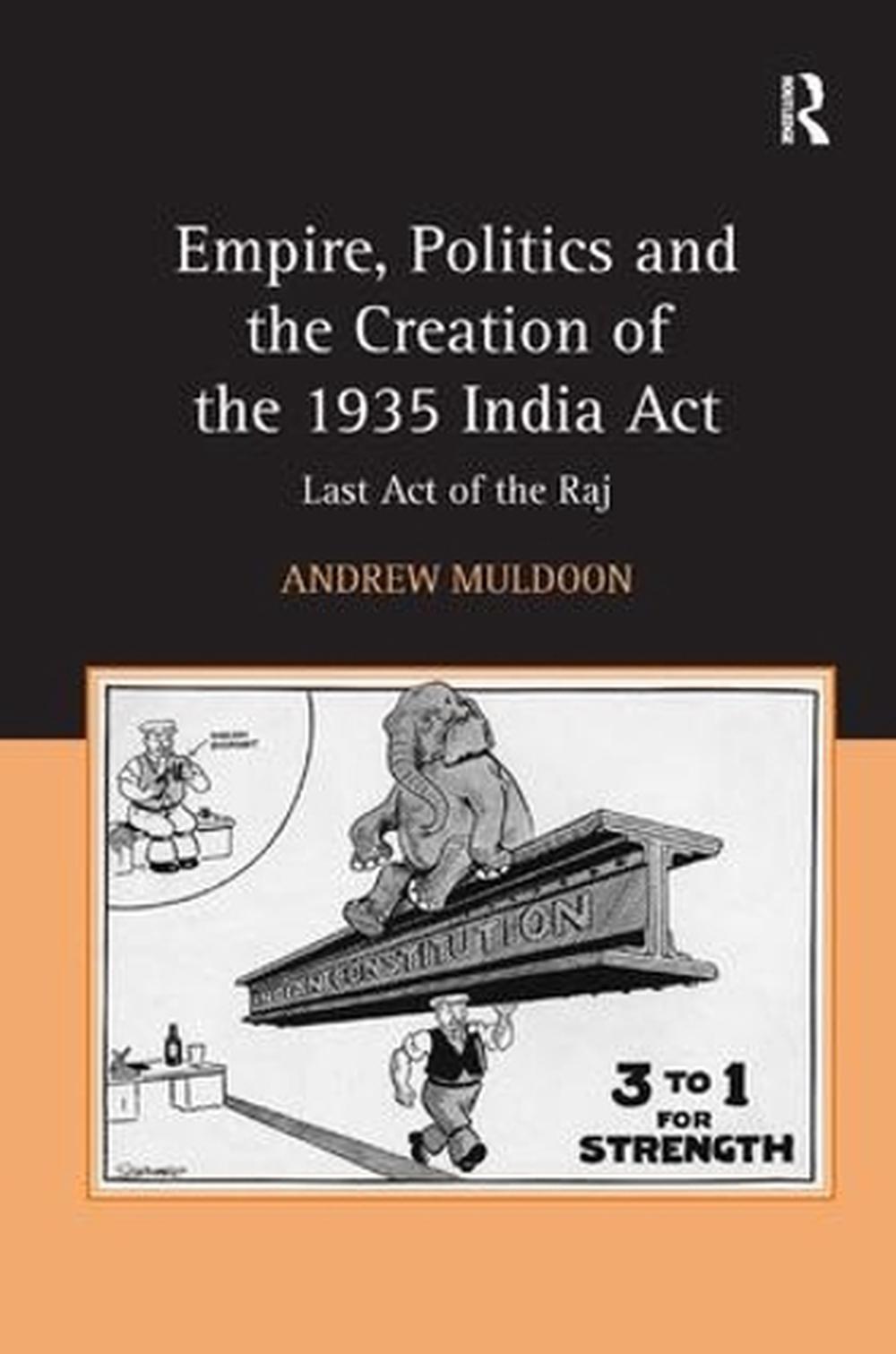
Empire, Politics and the Creation of the 1935 India Act
by Andrew Muldoon
Situating the Government of India Act of 1935 in its political, cultural and intellectual contexts, this rich and nuanced study asks the question; what led British administrators to believe that the Act would deflect the path of Indian nationalism, and how was the information on which this policy was based gathered?
Hardcover
English
Brand New
Publisher Description
The 1935 Government of India Act was arguably the most significant turning point in the history of the British administration in India. The intent of the Act, a proposal for an Indian federation, was the continuation of British control of India, and the deflection of the challenge to the Raj posed by Gandhi, Nehru and the nationalist movement. This book seeks to understand why British administrators and politicians believed that such a strategy would work and what exactly underpinned their reasons. It is argued that British efforts to defuse and disrupt the activities of Indian nationalists in the interwar years were predicated on certain cultural beliefs about Indian political behaviour and capacity. However, this was not simply a case of 'Orientalist' policy-making. Faced with a complicated political situation, a staggering amount of information and a constant need to produce analysis, the officers of the Raj imposed their own cultural expectations upon events and evidence to render them comprehensible. Indians themselves played an often overlooked role in the formulation of this political intelligence, especially the relatively few Indians who maintained close ties to the colonial government such as T.B. Sapru and M.R. Jayakar. These men were not just mediators, as they have frequently been portrayed, but were in fact important tacticians whose activities further demonstrated the weaknesses of the colonial information economy. The author employs recently released archival material, including the Indian Political Intelligence records, to situate the 1935 Act in its multiple and overlapping contexts: internal British culture and politics; the imperial 'information order' in India; and the politics of Indian nationalism. This rich and nuanced study is essential reading for scholars working on British, Indian and imperial history.
Author Biography
Dr Andrew Muldoon of Metropolitan State College of Denver, USA
Table of Contents
Introduction; Chapter 1 India Interpreted and Imagined: Culture, Intelligence and Policy-making in the Late-Colonial State; Chapter 2 The heart mesmerizes the head: Lord Irwin and the Nationalists, 1926–1931; Chapter 3 The Problem of Reliable Information: British-Indian Contacts in 1931 and 1932; Chapter 4 Watching Gandhi: Predicting Indian Political Behavior, 1933–1935; Chapter 5 Preventing an unholy row: Indian Reform, Commercial Policy and Lancashire, 1933–1935; Chapter 6 The Men Who Know: Authority, Policy and the Future of the Empire in the Conservative Party; Chapter 7 Provinces, Princes and Predictions: The Fate of the 1935 India Act; conclusion Conclusion;
Review
'The volume impressively brings a keen appreciation of British domestic politics to the study of constitutional reform in India.' American Historical Review
Long Description
The 1935 Government of India Act was arguably the most significant turning point in the history of the British administration in India. The intent of the Act, a proposal for an Indian federation, was the continuation of British control of India, and the deflection of the challenge to the Raj posed by Gandhi, Nehru and the nationalist movement. India Interpreted seeks to understand why British administrators and politicians believed that such a strategy would work and what exactly underpinned their reasons. The author argues that British efforts to defuse and disrupt the activities of Indian nationalists in the interwar years were predicated on certain cultural beliefs about Indian political behavior and capacity. However, this was not simply a case of Orientalist policy-making. Faced with a complicated political situation, a staggering amount of information and a constant need to produce analysis, the officers of the Raj imposed their own cultural expectations upon events and evidence to render them comprehensible. Indians themselves played an often overlooked role in the formulation of this political intelligence, especially the relatively few Indians who maintained close ties to the colonial government such as T.B. Sapru and M.R. Jayakar. These men were not just mediators, as they have frequently been portrayed, but were in fact important tacticians whose activities further demonstrated the weaknesses of the colonial information economy. The author employs recently released archival material, including the Indian Political Intelligence records, to situate the 1935 Act in its multiple and overlapping contexts: internal British culture and politics; the imperial information order in India; and the politics of Indian nationalism. This rich and nuanced study is essential reading for scholars working on British, Indian and imperial history.
Details

